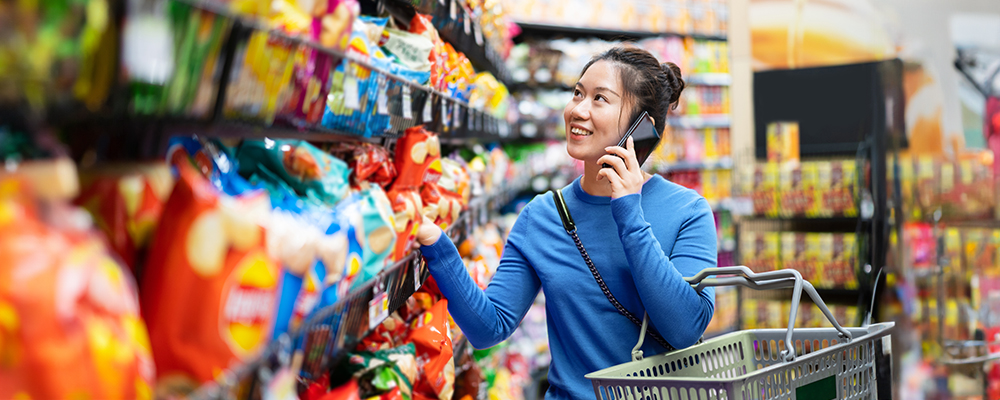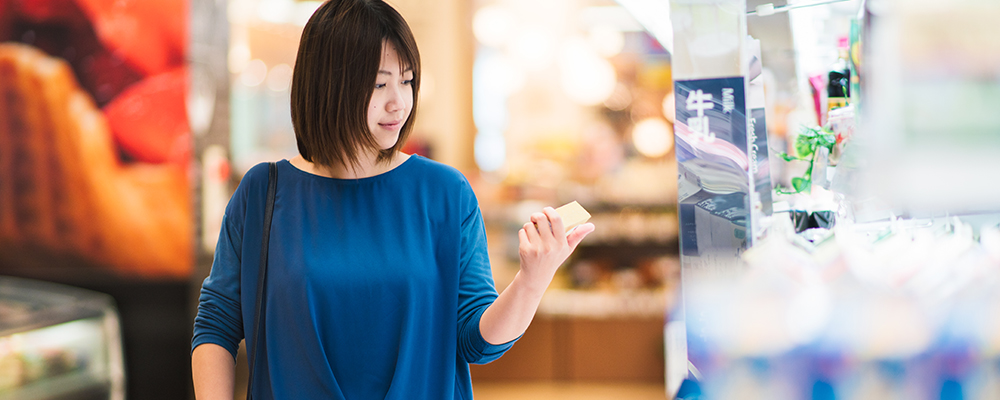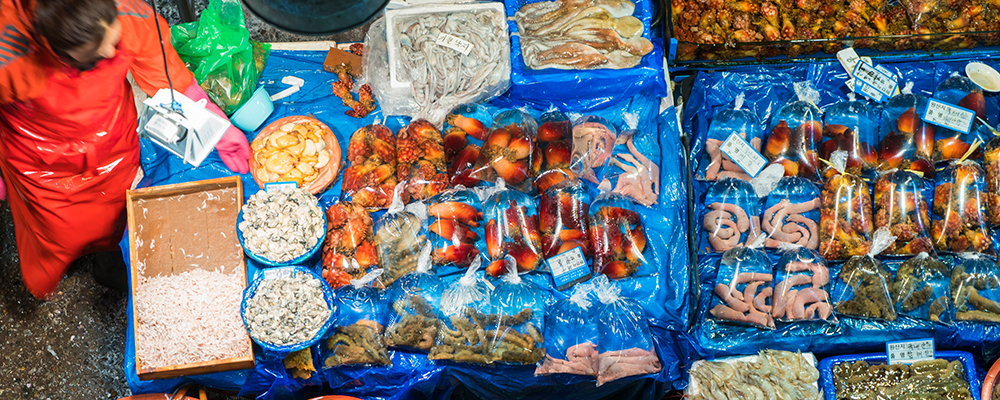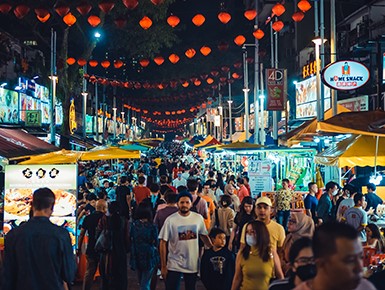
Ditch the Eiffel Tower, we’re going to the supermarket
A secret museum, a political revelation, a flash of insight into another reality: supermarkets are a sightseeing destination that offers something major attractions can’t.

First, they’re free and often include air-conditioned bliss, and if you catch them on the right day you’ll even get to sample an array of edible giveaways. When living abroad, supermarkets become hunting grounds for flavours from home, as well as new taste adventures. If you are on a whirlwind tour of Southeast Asia, they’re an opportunity to see an authentic slice of life away from your flag-waving tour guide.
There’s even room for romance. I fell a little bit in love with my husband outside a supermarket in Sofia, Bulgaria. It started with a fight and some classic miscommunication as he hauled me around the shop collecting snacks like it was an Amazing Race challenge. As he shoved a hastily made sandwich into my hand, I realised he thought I was hangry (hungry-angry) and about to explode. That’s love right?
Follow the locals to uncover unexpected perks
When you are not rushing to feed your travel companions, supermarkets become a tourist-free paradise of people watching. Parents, busy professionals, elderly shoppers, and home cooks: these are the locals you won’t find lining up to see the Mona Lisa or hiking the Great Wall of China. Close observation can help you jump over language barriers and get access to unseen extras. It was only by watching a customer interact with the butcher at Seoul's HomePlus supermarket that I realised I could buy beef fillet sliced exactly to my liking. And after weeks of eating paper-thin bulgogi I was yearning for a thick juicy steak.
Smaller convenience stores offer their own insights into the local community. Slip into a corner shop as the school bell rings, and you’ll witness the differences in kids' afterschool snack habits across the globe. Spicy tteobokki rice cakes in South Korea, sweet chocolate sandwiches in France, and onigiri rice balls in Japan. One constant is the sudden rise in animated chatter, the jostling of backpacks, and the burst of energy as students break free from the classroom.

You can tell a lot by how a country sells their eggs
The mundane task of food shopping at home can become a journey into political intrigue and cultural intricacies when abroad. Spotting a New Zealand or Australian leg of lamb in London, sold cheaper than back home, can spark conversations about import tariffs, the impact of war in Gaza on Red Sea shipping routes, and controversial commercial realities.
Even differences in store layouts can expose variations in cultural values and regulations. America requires eggs to be washed and sanitized before they're sold. This strips away the protective membrane that prevents the growth of bacteria. The end result is that you’ll have to hunt down spotless eggs shivering in the chilled section to extend their shelf life. Many other countries prioritise preserving the egg’s natural defence system and stack mud-splattered trays directly on the shelf, sometimes with the odd feather still attached.
Bond over cauliflowers and imported cheese
The difference in supermarket prices became a genuine point of connection with my mum during my years of travelling overseas. She has always been able to recall the price of a cauliflower, and once we’d discussed the weather, comparing the price of produce at London’s Sainsbury's versus Queenstown’s New World sparked many long-distance discussions.
When my parents came to visit me in South Korea during my English teaching years, a trip to Lotte Mart to buy groceries became the colorful background to our reunion. Aisles of noodles, mysterious root vegetables, and rows of pungent seafood were discovered and discussed. Unusual samples were tasted as we delved into the lower levels trying to find the good, but outrageously expensive imported cheddar cheese.

Savour the forbidden foods that are typically off-limits
For travellers with dietary restrictions like coeliac disease, overseas supermarkets are a treasure trove of foods that have been inaccessible at home. Italy's practice of routinely screening children for coeliac disease has fostered widespread understanding and care for gluten-free dining, extending well beyond restaurants to supermarkets and pharmacies. The aisles filled with gluten-free breadsticks, croissants, and madeleines can easily rival the allure of Rome’s Trevi Fountain.
So, take the tours, see the sights, but don’t forget aisle three, where you’ll discover an intimate taste of authenticity that no travel guide can sell you.
The content of this article is general and provided for information purposes only. Southern Cross Travel Insurance (SCTI) doesn’t guarantee or warrant the accuracy, completeness or currency of any article.
This article may contain hyperlinks to other websites owned or operated by third parties, or references to third party products or services. SCTI isn’t responsible for, and makes no recommendation about, the content or accuracy of any third party website, or for the suitability or performance of any product or service. The inclusion of a link in this article doesn’t imply that SCTI endorses the website or third party product/service.





